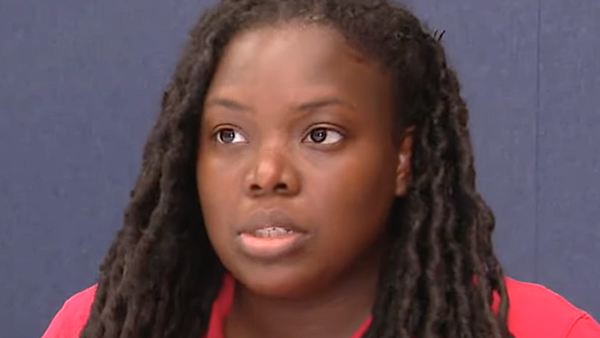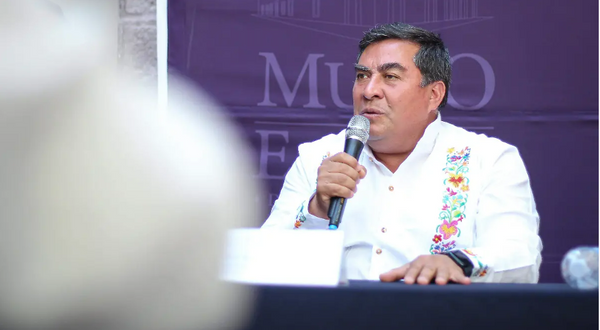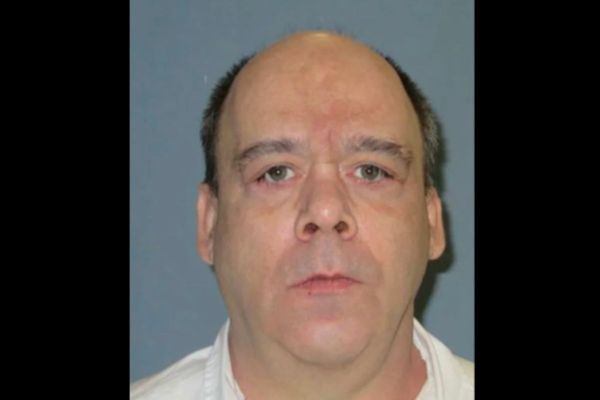Runty big-nosed scruff... Dustin Hoffman in the Graduate.
Knocked Up is more than just the latest effort from Hollywood's "Jew-Tang Clan" - it's also a film that actually makes you proud to be Jewish. Fat, useless, ugly stoner Seth Rogen turns out to be more switched-on, emotionally connected and beautiful-inside than the uptight blonde Wasp with whom he has an accidental baby. High-minded holocaust dramas like Schindler's List or Fateless may be imperishable history lessons and remind us of much that should never be forgotten, but they don't necessarily make the kosher chest swell with pride. Here's some more that do:
Where Eagles Dare
Any film - and there are many to choose from - in which the Nazis get what's coming to them is always guaranteed to raise Jewish spirits, but this particular charmer has a special appeal: the ultimate SS blond beast, Sturmbannführer Von Happen, is played by a Jew, Derren Nesbitt. (You can see him with an unperoxided rug in Victim, the Dirk Bogarde lawyer-blackmail movie.) But in Eagles, Nesbitt's dye-job is almost as funny as Hitler's Jewish grandmother.
Crimes and Misdemeanors
Woody Allen's entire film-making career (up until Match Point, at any rate) should still be cause for unparalleled rejoicing among the Jewish people. More than anyone else, he's epitomised the idea - extremely appealing to Jews - of the whip-smart nerd who can run rings round lunkheads at will. He's made so much great stuff it's hard to know where to begin. Sleepers has the Friday-night-dinner under hypnosis scene; Love & Death the gag about Jews having stripes; Radio Days the old geezer running down the street in his drawers waving a meat cleaver. But C&M is arguably the most perfect Jewish film ever made - one in which religion is a complete letdown - and has three characters (Martin Landau, Alan Alda and Allen himself) that distil three sides to the Jewish character: guilt-stricken moralist, insecure hedonist, and self-defeating clown.
Borat
Not just confirmation that people called Cohen are likely to be funnier than anyone else, Borat also takes cultural self-mockery to whole new levels. The Kazakhs have got nothing to complain about: I don't think I've seen anything else quite as nasty as the scene where Borat and Azamat mutter horrible things about their painfully nice Jewish B&B hosts. However, Sasha Baron-Cohen's dance along the precipice of acceptability is cinema's greatest highwire act ever, itself a satire of the self-hating Jew. All we can do is stand back and admire.
P'Tang Yang Kipperbang
British Jews, cinematically speaking, tend to keep their heads down; we largely missed out in this country on that amazing wave of 60s and 70s comics that completely changed American culture. (I mean, look at what British cinema did to Baron-Cohen's Ali G.) One person we can be really proud of, though, is Jack Rosenthal. It's one of life's great mysteries as to how a Jewish grammar school boy could have created the greatest film about cricket ever made. Perhaps it was by coming up with a story that combined short-trousered shyness and Arlottian nostalgia - both, if you make the mental leap, attuned to special Jewish sensibilities - that Rosenthal managed to make the great imperial game into perfect movie fodder.
The Small World of Sammy Lee
British Jews made their most significant cinematic mark in the noirish years before and after the war. Night and the City - based on a novel by Jewish writer Gerald Kersh and with a very obvious kosher-hoodlum central figure - may be the archetype of the Soho thriller, but it was one of the last of the cycle, starring Tony Newley as a strip-club compere with a gambling debt, that really gets me going. Made in the early 60s, The Small World of Sammy Lee is a sort of British answer to What Makes Sammy Run?, one of Jewish America's great documents. Newley spends the film restlessly running from one potential life-saver to another as a bunch of goons are hot on his tail. Very unusually for its time, Sammy Lee's Jewish origins are made clear when he turns up in a Whitechapel grocer's, trying to touch his brother - and chopped-herring dealer - Warren Mitchell for a loan.
The Graduate
As British cinema lost interest in Jews, American cinema became obsessed. Dustin Hoffman was the great breakthrough: a short, runty, big-nosed scruff whose main selling point to the late 60s counterculture was that he didn't look anything like Charlton Heston. Though there's no Jewish stuff in the film itself, The Graduate is a generalised enough portrait of apparently-unremarkable suburbia for its diagnosis of cultural malaise to bite home. Hoffman's then-unconventional appearance only served to turn up the sneaking sense of disquiet.
The Fortune Cookie
Made the year before The Graduate, the first pairing of Matthau and Lemmon is remarkable for the fact that neither are supposed to be playing Jews. But that didn't fool anyone: you certainly couldn't mistake Matthau's wedding-cake-in-the-rain features for anything else. Jews could watch this film and know it was about them - and it was MUCH funnier than anything else around. These days, people tend to look back at The Producers as the breakthrough kosher comedy, but as far as I'm concerned The Fortune Cookie is the one: without this, we might never have had the great comedies of the late 60s and early 70s: The Odd Couple, Play It Again Sam, and all that came after.
Barton Fink
Like Woody Allen, the Coen brothers' entire career is one for which the Jewish people should be eternally grateful. Unlike Allen, however, they tend to steer clear of kosher matters in their films. (Notable exception, Walter Sobchak in The Big Lebowski: "I told those fucks down at the league office a thousand times that I don't roll on Shabbos!"). But the Coens' greatest gift to the Jews is the startling portrait of a sensitive playwright ground to mincemeat by the Hollywood machine. It brings together two opposing poles of the Jewish character: the high-minded Arthur Miller type, and the cigar-chomping Sam Goldwyn model, and invests it with the brooding paranoia that only Jews really understand. No wonder it's the Coens' least popular film.
The Evil Dead
The Coens learned a lot of their moves from Sam Raimi: Joel, as is well known, was the editor on Raimi's debut horror-comedy, and Raimi returned the favour by directing the hoop-rolling scenes in The Hudsucker Proxy. But Raimi's real claim to Jewish mythology is that he got the money to make The Evil Dead from his dentist uncle. Who knows if it's true, but it's a great story. The Coens did a similar thing and went to the local Hadassah in Minneapolis to score donations for Blood Simple.
Little Caesar
In a pre-Dustin Hoffman era, you couldn't get away with a name like Emmanuel Goldenberg. So when the young Romanian émigré to New York wanted to become an actor instead of a rabbi, he changed his name to Edward G Robinson and ended up a legend. There's a lot of competition to be the greatest Jewish actor of all, but Edward G is my favourite. In Little Caesar he was Jewish playing Italian (the opposite, incidentally, of Turturro in Barton Fink), and put himself on the map with that fantastic death scene, a very Catholic one: "Mother of Mercy - is this the end of Rico?" A pair of wartime noirs he made for Fritz Lang are arguably the greatest of the entire genre, but have been largely forgotten now: The Woman in the Window and Scarlet Street. Which brings us to...
Double Indemnity
Before the rise of Mel Brooks and Woody Allen, noir had some claim to be the key Jewish genre. Bolstered by a magnetic performance by Robinson, Double Indemnity still stands up wonderfully well. It has that great combination of émigré dread (imported from Germany by Billy Wilder) and LA brittleness (via James M Cain's novel). Wilder, born in what is now western Poland, spanned all the Jewish moods in his directing career; this one represents his most desperate.
Army in the Shadows
Culturally-speaking, French Jews sign up to the same manifesto as everyone else - France first and last - so don't tend to explore their own milieu with much gusto. (Though Martine Dugowson's Mina Tannenbaum was a rare exception.) France's greatest Jewish film director - and possibly the greatest of any religion - changed his name from Grumbach to Melville and pursued a film-making course that couldn't have been less interested in chicken-soup pieties: all he really wanted to do was recreate his favourite Hollywood gangster films. In the late 60s he conjured up the rigorously stylised trilogy that was his crowning achievement: the hitman movie Le Samourai, the heist flick Le Cercle Rouge, and the film that they sandwiched, L'Armée des Ombres. In this latter work, he brought to bear all the tough, sinewy cinema moves that made his crime films so watchable into an account of the French resistance. Again, Army in the Shadows hasn't got much to do with Jews in itself, but it's a film that we should all get on our chairs and salute whenever possible.







